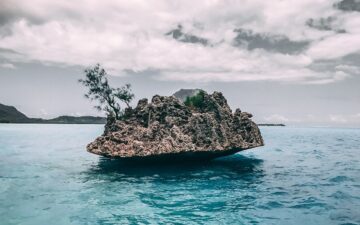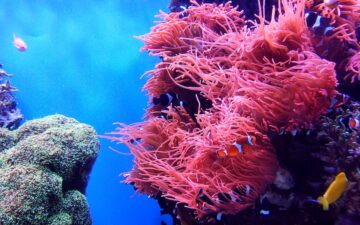For the last decade, The Ocean Foundation has been engaged in support of non-governmental organizations on deep seabed mining (DSM), bringing our unique legal and financial expertise and private sector relationships to support and complement ongoing work, including:
- Protecting marine and coastal ecosystems from the effects of terrestrial mining,
- Engaging with financial regulators regarding sustainability claims made by would-be deep seabed mining companies; and
- Hosting a fiscally sponsored project: Deep Sea Mining Campaign.
We are proud to join the Deep Sea Conservation Coalition (DSCC) and will work with DSCC members to ensure a DSM moratorium.
The DSCC calls for authorities and governments across the globe issue a moratorium (official delay) on permitting any deep seabed mining until the risks are understood, it can be demonstrated that it will not cause damage to the marine environment, public support has been obtained, alternatives have been explored, and governance issues have been resolved.
TOF supports a moratorium on deep seabed mining by shifting and defining key narratives.
Leveraging TOF’s many memberships and advisory roles and our staff’s unique past experience in the private sector, we will partner with Non Governmental Organizations, scientific organizations, high level groups, corporations, banks, foundations, and countries who are members at the International Seabed Authority (ISA) to advance these narratives. Ocean literacy is at the core of this work. We believe that as different stakeholders are informed about DSM and the threat it poses to their loves, livelihoods, ways of life, and very existence on a planet with a functioning ecosystem, opposition to this dangerous and uncertain proposal will follow.
TOF is committed to setting the record straight and telling the scientific, financial, and legal truth about DSM:
- DSM is not a sustainable or blue economy investment and must be excluded from any such portfolio.
- DSM is a threat to the global climate and ecosystem functions (not a potential climate change solution).
- The ISA – an opaque organization that governs half of the planet – is not structurally able to execute its mandate and its draft regulations are years from being functional or even coherent.
- DSM is a human rights and environmental justice issue. It is a threat to underwater cultural heritage, food sources, livelihoods, liveable climate, and the marine genetic material of future pharmaceuticals.
- DSM stands to benefit few companies and people, not humankind (and most likely not even states that sponsor or support DSM enterprises).
- Ocean literacy is key to building and sustaining opposition to DSM.
Our Team
TOF President, Mark J. Spalding, is deeply involved with the United Nations Environment Programme Finance Initiative program on Sustainable Blue Finance, and is part of its working group that will issue DSM finance and investment guidance. He also counsels financial institutions and foundations on standards for sustainable blue economy investments. He and TOF are the exclusive ocean advisors to two ocean-centric investment funds with a combined $920m in assets under management.
TOF DSM focal point, Bobbi-Jo Dobush, has a decade of experience both challenging and defending environmental impacts statements, and has provided critical comments on various deep seabed mining proposals. Her critique of the ISA’s regulatory structure and exposure of greenwashing by the deep seabed mining industry is informed by years of advising on project development and permitting as well as ESG and sustainable finance reporting regimes at a corporate law firm. She leverages existing relationships with lawyers, scientists, and scholars working on stewardship of the deep sea, particularly her involvement with the Deep Ocean Stewardship Initiative.







